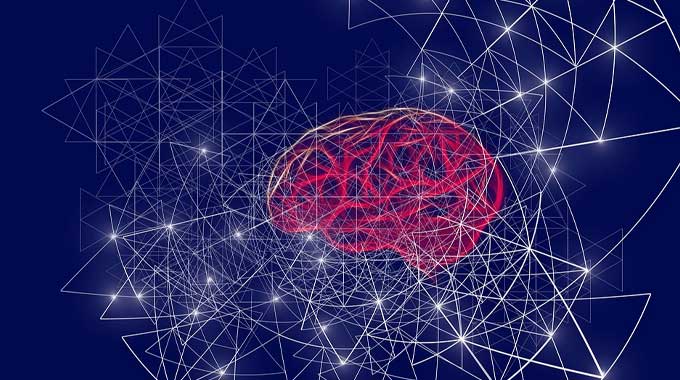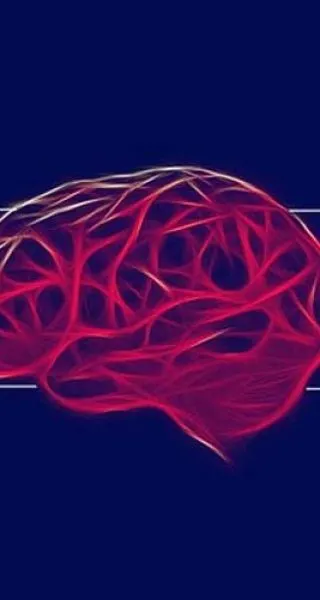Transcranial magnetic stimulation (TMS) therapy is a Food and Drug Administration (FDA) approved treatment for depression, obsessive-compulsive disorder (OCD), and pain associated with certain migraine headaches. It is a safe treatment that produces magnetic pulses that stimulate nerve cells in specific brain regions.
- What Is Transcranial Magnetic Stimulation Therapy
- Does Tms Have Any Long Term Side Effects
- Does Tms Have Fewer Side Effects Than Other Major Depression Treatments
- Does Tms Hurt
- Can Repetitive Transcranial Magnetic Stimulation Increase Anxiety
- Does Tms Cause Hair Loss
- Does Tms Affect Memory
- Can Tms Cause Brain Tumors
- Can Tms Cause Mania
- Why Is Tms Controversial
- Who Should Avoid Tms
- This Includes
- What Is A Typical Course Of Tms Therapy
- How Effective Is Tms Treatment
- Contact Us
Some people experience mild discomfort during TMS sessions, and there are side effects associated with treatment. However, these are generally mild and quickly subside. If you are worried about the potential side effects of TMS therapy, we have all the information and answers you need.
What Is Transcranial Magnetic Stimulation Therapy?
TMS stands for transcranial magnetic stimulation and works by stimulating certain regions of the brain through magnetic impulses also called TMS pulses. Depending on the disorder a person is seeking treatment for, different brain areas are targeted.
TMS therapy, also often referred to as repetitive transcranial magnetic stimulation (rTMS) has shown effectiveness in addressing depression symptoms and major depressive disorder - especially treatment-resistant depression.
During a transcranial magnetic stimulation (TMS) session, brief magnetic pulses are applied to a person's head. During TMS treatment electrical currents pass through a magnetic coil to enhance activity in specific areas of the brain. These electrical currents activate cells in the left prefrontal cortex in particular, as this is the area of the brain involved in mood control and regulation.
The theory behind TMS suggests that these electrical currents activate brain cells that control mood as they release neurotransmitters such as dopamine, serotonin, and norepinephrine.
Does TMS Have Any Long-Term Side Effects?
Brain stimulation therapies can be shrouded in misconceptions and concerns about safety. In fact, TMS treatment is considered safe for most people and non-invasive. For many people struggling with treatment-resistant major depression, TMS therapy provides the relief that antidepressant medications cannot with little to no side effects.
Clinical trials have reported no long-term side effects of TMS therapy, although short-term side effects are fairly common. The most frequently reported side effects of TMS therapy are pain at the side of stimulation, discomfort at the site, and jaw pain. Mild headaches have also been reported, but are generally short and treatable with over-the-counter pain medication.

Does TMS Have Fewer Side-Effects Than Other Major Depression Treatments?
Transcranial magnetic stimulation therapy usually causes fewer side effects than other forms of brain stimulation therapy and electroconvulsive therapy. In addition, contrary to common belief, TMS therapy is associated with fewer side effects than antidepressant medication. Antidepressant medication can often cause a wide range of side effects, including fatigue, sexual dysfunction, loss of libido, stomach problems, weight gain, insomnia, and even anxiety.
Does TMS Hurt?
TMS therapy is a non-invasive treatment and is generally not painful although many people report a mild tapping sensation or scalp discomfort during the session.
Can Repetitive Transcranial Magnetic Stimulation Increase Anxiety?
One of the most common concerns for people with severe depression looking into TMS therapy is that TMS will cause increased levels of anxiety. Certain studies have shown that when deep transcranial magnetic stimulation is administered for treatment-resistant depression or panic disorder it can cause higher anxiety levels.
However, TMS has also been used to treat generalized anxiety, and TMS’s effects on anxiety vary greatly based on the specifics of the patient’s condition.
Does TMS Cause Hair Loss?
Transcranial magnetic stimulation (TMS) therapy is not damaging to your scalp or hair growth. While TMS treatment may cause mild scalp discomfort for some people, there are no reports of hair loss as a result of treatment.
Does TMS Affect Memory?
Transcranial magnetic stimulation (TMS) therapy does not cause memory loss. In fact, there is evidence that TMS can actually improve mem0ry. One study found that when comparing the recollection of non-depressed adults, individuals that received daily TMS treatment had a 31% improvement in recollection.
Can TMS Cause Brain Tumors?
There is no evidence that TMS therapy causes brain damage or brain tumors. The magnetic fields produced during TMS therapy are the same type and strength as MRIs (magnetic resonance imaging), which are used regularly around the world and show no association with brain tumors.
TMS treatment is, however, not always appropriate for people with brain damage from illness or injury, such as a brain tumor, a stroke, or a traumatic brain injury. It is best to speak to your healthcare provider and make them aware of any medication that you are taking or health problems you have or have had in the past.
Can TMS Cause Mania?
Although the risk is incredibly low, there are cases of TMS-induced mania. This is most common in individuals with a history of bipolar disorder.
One study reviewing side effects in TMS trials identified the risk of mania emerging during TMS treatment as 0.84%. This is only minimally higher than that of the control group, who underwent placebo or sham TMS treatment. The control group's TMS-emergent mania rate was 0.73%.
One case study found that treatment-emergent hypomania was related to TMS application focusing on the left side of the brain during treatment of unipolar depression in four patients without a history of hypomanic or manic episodes.
While the risk is low, there is some risk or mania when starting TMS therapy.

Why is TMS Controversial?
People that don't yet know the extent of research conducted on the safety and efficacy of TMS therapy may find the treatment controversial or concerning. In addition, some people experience what is known as a TMS dip. This is a temporary increase in depression or anxiety symptoms. People who have experienced this 'dip' generally report it around halfway through the treatment process, or after around 10 to 15 sessions as the brain cells adjust to the new changes.
It is important to note that the worsening of these symptoms is temporary for the majority of people who report that symptoms alleviate as they go through treatment. This dip is also common in other depression treatments including antidepressant medications.
Another reason TMS may be controversial is due to the risk it can have on people with bipolar disorder. It is not recommended that individuals with a history of bipolar disorder undergo TMS therapy. In rare cases, individuals with bipolar can be misdiagnosed with depression and in this case, there have been reports of TMS making symptoms worse.
Who Should Avoid TMS?
Although it is approved by the FDA, as with any treatment there are certain people for whom TMS therapy is not recommended. The electromagnetic coil only produces very small electrical currents, yet the magnetic fields from the TMS therapy system can be dangerous to people that have some form of metal implants in their heads.
This includes:
- deep brain stimulators
- permanent piercings
- electrodes
- shrapnel or bullet pieces
- neck or brain stents
- aneurysm clips or coils
- facial tattoos with metallic ink
- metal plates
- cochlear implants
It is always recommended that you disclose any object implanted in your head to a medical professional before commencing treatment in order to mitigate the risk of dangerous adverse effects.
What Is a Typical Course of TMS Therapy?
TMS therapy is an outpatient procedure, so generally takes place on a daily or weekly basis and can easily be integrated into patients' daily routines. Doctors generally recommend 30 sessions of TMS, often scheduled five times per week for four to six weeks. It is safe to drive after treatment, so people can experience the positive results of TMS without too much disruption to their daily life.
TMS may also be included as part of an inpatient treatment program such as those for substance abuse. Studies show that over half of people with a substance use disorder (SUD) have a co-occurring mental health disorder such as depression, and they may even have started abusing substances to self-medicate.
How Effective Is TMS Treatment?
Transcranial magnetic stimulation therapy has been predominantly offered as a treatment for depression, showing an incredibly promising success rate of between 30 and 64 percent.
Although not yet FDA-approved for more disorders, in clinical trials TMS has shown great success in the treatment of neurological and psychiatric disorders such as anxiety, post-traumatic stress disorder (PTSD), and epilepsy.

Contact Us
GIA Chicago is a mental health clinic specializing in transcranial magnetic stimulation treatment. Our treatment center offers the most up-to-date and advanced evidence-based treatment administered by outstanding mental health professionals.
TMS can be a life-changing treatment option, especially impactful for people who have tried other treatments for depression or other mental disorders and have not experienced improved symptoms. We have an expert team of transcranial magnetic stimulation (TMS) psychiatrists to support you through this process. Contact us today to find out more.

